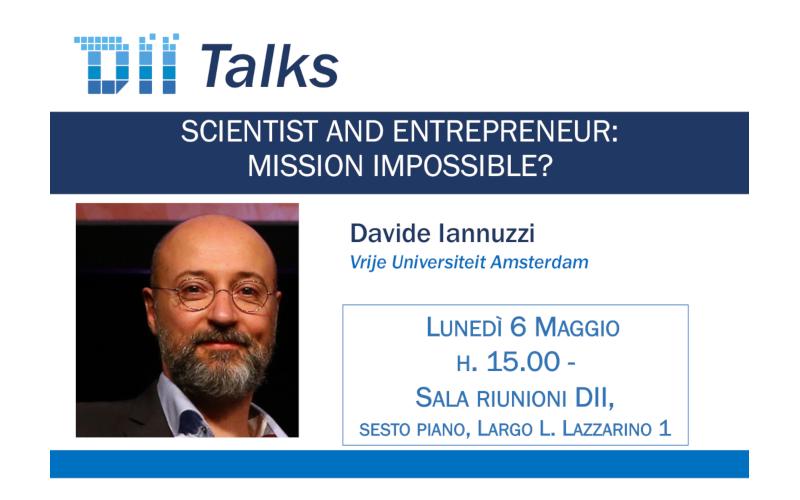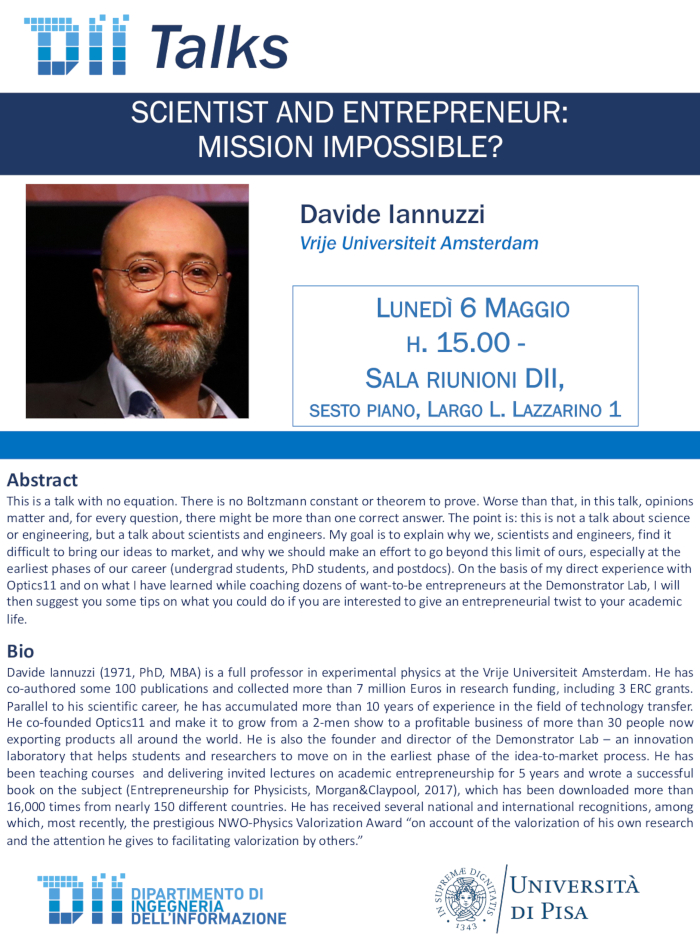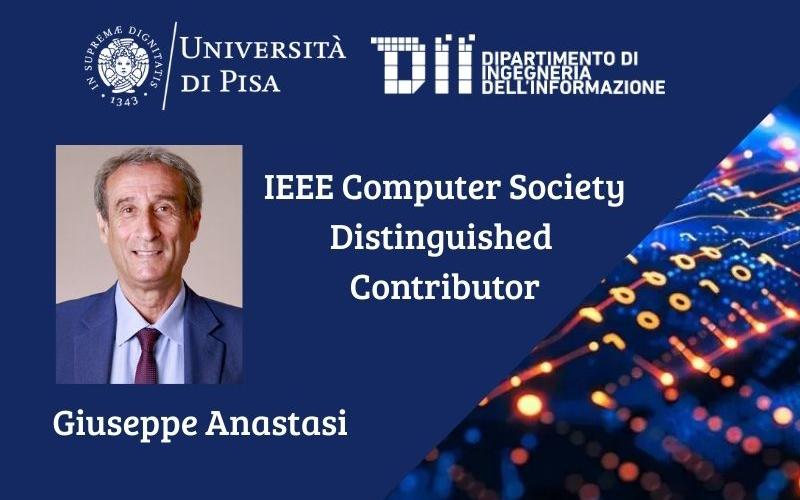La nomina a Distinguished Contributor (DC) premia i membri e gli affiliati della Computer Society che hanno apportato contributi tecnici significativi e continuativi alla IEEE Computer Society, alla...
Leggi tutto[DII Talks] Scientis and Enterpreneur: Mission Impossible?

Sala Riunioni DII
Sesto Piano, Largo Lucio Lazzarino, 1
Abstract
This is a talk with no equation. There is no Boltzmann constant or theorem to prove. Worse than that, in this talk, opinions matter and, for every question, there might be more than one correct answer. The point is: this is not a talk about science or engineering, but a talk about scientists and engineers. My goal is to explain why we, scientists and engineers, find it difficult to bring our ideas to market, and why we should make an effort to go beyond this limit of ours, especially at the earliest phases of our career (undergrad students, PhD students, and postdocs). On the basis of my direct experience with Optics11 and on what I have learned while coaching dozens of want-to-be entrepreneurs at the Demonstrator Lab, I will then suggest you some tips on what you could do if you are interested to give an entrepreneurial twist to your academic life.
Bio
Davide Iannuzzi (1971, PhD, MBA) is a full professor in experimental physics at the Vrije Universiteit Amsterdam. He has co-authored some 100 publications and collected more than 7 million Euros in research funding, including 3 ERC grants. Parallel to his scientific career, he has accumulated more than 10 years of experience in the field of technology transfer. He co-founded Optics11 and make it to grow from a 2-men show to a profitable business of more than 30 people now exporting products all around the world. He is also the founder and director of the Demonstrator Lab – an innovation laboratory that helps students and researchers to move on in the earliest phase of the idea-to-market process. He has been teaching courses and delivering invited lectures on academic entrepreneurship for 5 years and wrote a successful book on the subject (Entrepreneurship for Physicists, Morgan&Claypool, 2017), which has been downloaded more than 16,000 times from nearly 150 different countries. He has received several national and international recognitions, among which, most recently, the prestigious NWO-Physics Valorization Award “on account of the valorization of his own research and the attention he gives to facilitating valorization by others.”




